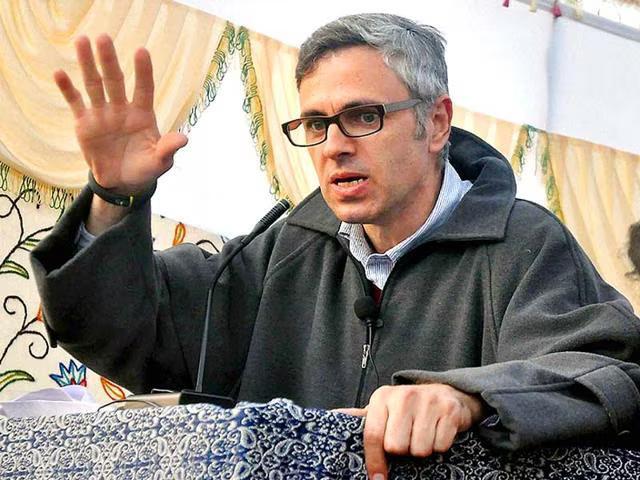
US Doesn’t Care About Any Other Country: J&K CM Omar after Trump-Pak Army Chief Lunch
In a scathing remark, Jammu and Kashmir (J&K) Chief Minister Omar Abdullah has expressed his disappointment and frustration over US President Donald Trump hosting Pakistan Army Chief Asim Munir for lunch. This move has sparked widespread outrage, particularly among the Indian public, as it is seen as a snub to India’s sovereignty and territorial integrity.
In an interview, Omar Abdullah expressed his anguish and disappointment over the recent development, stating, “We can’t dictate to the US President whom he should invite for dinner. We used to think the US President was our close friend, and he’d respect that, but the US does what benefits them, they don’t care about any other country.” His words echoed the sentiments of many Indians who feel that the American administration’s actions are driven by their own self-interest, rather than any genuine concern for the well-being of other nations.
The perception that the US is not concerned about the feelings and interests of other countries is not new. The Trump administration’s handling of foreign policy has been marked by a perceived lack of empathy and understanding for the concerns of other nations. The recent move to invite the Pakistan Army Chief for lunch is only the latest example of this trend.
India, in particular, has been a long-standing ally of the US, and has received significant military and economic aid from the country. However, despite this, India has often felt that its concerns and interests are not given due consideration by the American administration. The recent decision to invite the Pakistan Army Chief for lunch is seen as a betrayal of this trust, and has sparked widespread outrage in India.
The timing of the lunch is also seen as suspect, as it comes at a time when India is still reeling from the Pulwama terror attack, which was carried out by a Pakistan-based terrorist organization. The attack resulted in the deaths of over 40 Indian security personnel, and led to a significant escalation of tensions between India and Pakistan. The invitation to the Pakistan Army Chief for lunch is seen as a clear sign that the American administration is not concerned about the well-being of India or its citizens.
Omar Abdullah’s comments also highlight the fact that the US often approaches international diplomacy with a transactional mindset, rather than a genuine interest in building relationships and fostering cooperation. The American administration is often accused of using its power and influence to further its own interests, rather than working to build a more equitable and just international order.
The invitation to the Pakistan Army Chief for lunch is also seen as a clear signal that the American administration is willing to engage with Pakistan, despite its long history of supporting terrorism and destabilizing the region. This has led to concerns that the US is compromising its own values and principles in order to further its own interests.
In conclusion, Omar Abdullah’s sharp response to the US President’s decision to host the Pakistan Army Chief for lunch is a reflection of the widespread frustration and disappointment that many Indians feel towards the American administration. The timing and tone of the invitation are seen as a clear snub to India’s sovereignty and territorial integrity, and have sparked widespread outrage in the country. The need for the US to adopt a more nuanced and balanced approach to international diplomacy is clear, and it is hoped that the American administration will take Omar Abdullah’s comments as a wake-up call to rethink its approach to foreign policy.






